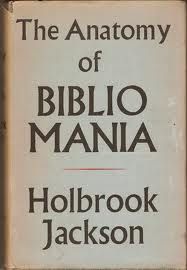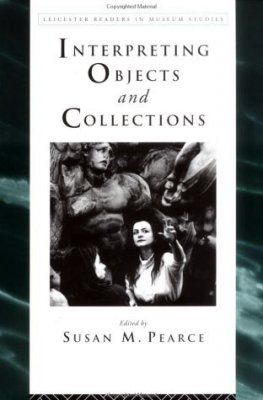“Some people think that collecting old books is a kind of mild insanity. The collector, on his side, smiles upon the ignorant who cannot understand the enjoyment of collecting. The philosopher says: Ne quid nimis, go not too far. But all of the adages this one is the most difficult to follow. The bibliophile is the master of his books, the bibliomaniac their slave. With development of bibliomania, the friendly, warming flame of a hobby become devastating, ravaging wildfire, a tempest of loosened and vehement passions. We are then in the presence of a pathological, irresistible mental compulsion, which has produced more than one crime interesting enough to be remembered”

“Some people think that collecting old books is a kind of mild insanity. The collector, on his side, smiles upon the ignorant who cannot understand the enjoyment of collecting. The philosopher says: Ne quid nimis, go not too far. But all of the adages this one is the most difficult to follow. The bibliophile is the master of his books, the bibliomaniac their slave. With development of bibliomania, the friendly, warming flame of a hobby become devastating, ravaging wildfire, a tempest of loosened and vehement passions. We are then in the presence of a pathological, irresistible mental compulsion, which has produced more than one crime interesting enough to be remembered”
What amazes me about this opening quote is that it was written almost 70 years ago. It comes from an article by Dr. Martin Sander published in the Journal of Criminal Law and Criminology (1943). So what’s the evidence for the existence of “bibliomania”? Does it really exist? In a nutshell, yes.
Bibliomania has been reported to be a symptom of some obsessive-compulsive disorders particularly those associated with the collecting and hoarding of books. For a small minority, bibliomania can result in the breakdown of personal relationships and/or the damaging of the person’s health. It is believed that the condition had no generally accepted name until 1866. Dr. John Ferriar – a British physician from Manchester – had a poem published simply entitled "Bibliomania".

In his 2001 book The Anatomy of Bibliomania, Holbrook Jackson noted that English bibliographer Thomas Dibdin (1776-1847) wrote about bibliomania. Dibdin described the condition as a fatal affliction and referred to it as “the Book disease” that has “almost uniformly confined its attacks to the male sex, and among these, to the people in the higher and middling classes of society, while the artificer, labourer, and peasant have escaped wholly uninjured”.
In recent history, arguably the most well known bibliomaniac was Stephen Blumberg from Iowa (US). The so-called “book bandit” was convicted of stealing $5.3 million worth of books (over 23,600 books). In 1991 during Blumberg’s trial, the forensic psychiatrist Dr. William S. Logan noted that Blumberg had been treated for compulsive behaviour and had suffered schizophrenic delusions ad that these conditions had underpinned his bibliomania. Following a 41⁄2-year prison sentence, Blumberg was released but immediately resumed his book collecting and stealing.
Despite the condition being written about for 150 years, bibliomania is not a psychological disorder recognized by the American Psychiatric Association’s Diagnostic and Statistical Manual of Mental Disorders. Bibliomaniac behaviours include the multiple purchasing of the same book and in more extreme cases the persistent stealing of books. One of the defining features of bibliomania is that the acquisition and collecting of increasing numbers of books have no use to the bibliomaniac, nor little intrinsic value to genuine book collectors. Other book-related conditions include ‘bibliophilia’ (which is simply the love of books but not in a paraphilic sense), ‘bibliokleptomania’ (the stealing of books), ‘bibliophagy’ (the eating of books), and ‘bibliotaphy’ (the burying of books).
Dr Norman Weiner wrote a theoretical paper on bibliomania in a 1966 issue of the Psychoanalytic Quarterly because it had “largely been ignored by psychoanalysts”. He noted that few people enter treatment for bibliomania and speculated that this was because the activity may be ego-syntonic (i.e., a behaviour that is in harmony with and acceptable to the needs and goals of the person’s ego or ideal self-image). He also provided case study evidence that for some people, the act of book collecting as a hobby may cause psychological conflict that for sufferers relieves anxiety.

Writing in a 2006 issue of the International Journal of Psychoanalysis, Dr. Peter Subkowski wrote that the urge to collect is a ubiquitous phenomenon that has anthropological, sociobiological and individual psychodynamic roots (not surprising given that Subkowski is a psychoanalyst). He also claims that collecting occurs far more frequently among men than women. He describes collecting as an activity that can be “addictive, obsessive and messy””. From his psychoanalytical standpoint, Subkowski claimed that the type of collecting and choice of object were important indicators as to the unconscious psychodynamics of a collector and that:
“Collecting ranges across a broad spectrum, from an ego-syntonic integrated mode (i.e. sublimation) to a neurotic defence against pre-oedipal or oedipal traumas and conflicts…Collecting represents a specific form of object relating and way of handling primary loss trauma, which is different from addiction, compulsion, or perversion”.
When researching this article, I came across very little academic research on the topic although there has been a fair amount of research on collectors. For instance, Dr. Russell Belk (1991) writing in the Journal of Social Behavior and Personality describes collectors of mass-produced objects as falling into one of two main types: the taxonomic collector who attempts to own an example of every type of a series of items produced, and the aesthetic collector who simply gathers items because they are pleasing in some way. Belk also describes collecting as “fetishistic” and that collecting items and bringing them together makes them sacred.
In a 1991 issue of the Journal of Social Behavior and Personality, Ruth Formanek’s suggested five common motivations for collecting. These were: extension of the self (e.g., acquiring knowledge, or in controlling one’s collection); social (finding, relating to, and sharing with, like-minded others); preserving history and creating a sense of continuity; financial investment; and finally, an addiction or compulsion. Formanek says that what is common to all motivations to collect is a passion for the particular things collected. Professor Donald Case (University of Kentucky, US) in a 2006 review of collecting in the journal Library Trends says that it is this almost “sexual excitement” that led many early psychologists (including Freud) to see collecting as a manifestation of anal-erotic impulses.

An empirical survey by Formanek of 167 people (a mixture students, university staff members, collectors, art dealers, etc.) was published as a book chapter in the 1994 book Interpreting Objects and Collections (edited by Dr. Susan Pierce). One of the primary objectives of Formanek’s study was to look at the motivation of book collectors. She noted that:
“An important motivation is the feeling of excitement and elation. Referred to but as yet unexplored in the literature, is the collector’s addiction to collecting. The terms ‘obsession’ and ‘compulsion’ are mentioned chiefly in the popular literature, and are not distinguished from addiction”.
Of those who completed the survey, nine of the participants specifically mentioned addiction, obsession and compulsion as one of the reasons for collecting books although only one collector went into any detail. There were many other motivations for book collecting listed including the books being a financial investment, the challenge of the hunt, adding to one’s knowledge, and “collecting as preservation, restoration, history and a sense of continuity”.
Bibliomania probably means different things to different people and for some it is seen in a more positive light whereas others pathologize the behaviour. It doesn’t look as though the condition will appear in the Diagnostic and Statistical Manual of Mental Disorders any time soon, but there certainly appears to be a small body of empirical evidence to suggest that for some people, book collecting can be compulsive.




